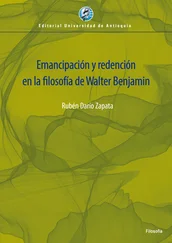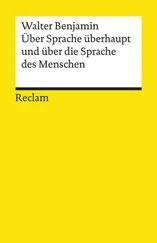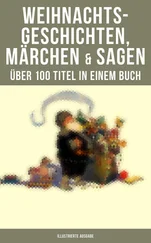The greatest magic of the people Hoffmann described, however, rests precisely in the way that in even the most noble and exalted characters, with the exception of some of his girl figures, there is something satanic going on. This storyteller insists with a certain obstinacy that all the reputable archivists, medical officers, students, apple-wives, musicians, and upper-class daughters are much more than they appear to be, just as Hoffmann himself was more than just a pedantic and exacting court of appeals judge, which is how he made his living. 3Hoffmann’s uncommon observational ability, coupled with his character’s satanic elements, enabled something like a short circuit between moral judgment and physiognomic views to emerge. The ordinary person, who had always been the object of his entire hatred, seemed to him more and more to be, in his virtues as well as in his beauties, the product of a heinous artificial mechanism, whose innermost parts are ruled by Satan. He equates the satanic with the automatic, and this ingenious schema, which underlies his tales, allows him to claim life entirely for the pure and genuine side of the spirits so as to glorify it in figures such as Julia, Serpentina, and Antonie. With this moral conflict between life and appearance, Hoffmann has articulated, unless I am very much mistaken, the primal motif of the fantastic story. Whether we speak of Hoffmann, Poe, Kubin, or Panizza, to name only the greatest, the work is always based on the most definitive religious dualism; one might call it Manichean. And for Hoffmann this duality did not stop at what he considered most holy; it did not stop at music. Could one not produce the primal tones of which we spoke, this last and most certain message from the spirit world, by mechanical means? Were not the Aeolian harp and the clavichord successful first steps on this path? It was then that it became possible to ape our deepest, holiest yearning with mechanical art works; it was then that every love that spoke to us in tones from home became a phantom. These questions constantly move Hoffmann’s writing. And we will find them again, unchanged, although in a thoroughly transformed, thoroughly alienating atmosphere, when we now turn to Panizza.
At the present time, Panizza’s name and work are in exactly the same state as were Hoffmann’s from the middle of the last century through the turn of this one. He is as unknown as he is discredited. But although the memory of Hoffmann, extinguished in Germany, had never ceased to be celebrated in France, it is not to be expected that similar amends will be made to Panizza. There are unimaginable obstacles in Germany today to compiling his writings with anything approaching completeness. Although a Panizza Society was established last year, it has not yet found the ways and means to reprint his most important works. There are many reasons for this, but perhaps the most important is that one of these writings would today be forfeited to the district attorney, just as it was thirty-five years ago. In fact, Panizza’s brief fame can be tied to a few scandalous trials. In 1893, on the occasion of the fiftieth anniversary of Pope Leo XIII’s appointment as a bishop, his The Immaculate Conception of the Popes appeared, with the apocryphal comment: “Translated from the Spanish by Oskar Panizza.” 4Two years later, it was followed by The Love Council: A Heavenly Tragedy in Five Acts, for the publication of which he spent a year in the Amberg prison. 5After serving his sentence, he left Germany, and when, forced by the confiscation of his property, he returned in 1901, he spent six weeks in investigative custody in a psychiatric clinic, after which he was declared certifiably insane and released. The cause of this last custody was Parisjana, German Verses from Paris, pervaded by fierce attacks against Emperor Wilhelm II. 6Besides these reasons for the condemnation of his name and the disappearance of his writings, every feature of a certain characteristic, more closely examined, will add a few more. For this characteristic we can discard mental illness, to which one might be tempted to make a connection. There is no doubt of its reality: it was paranoia. If, however, the paranoid systems already exhibit theological tendencies, then one can say that this illness, insofar as it had any influence on his creative work other than to impede it, in no way contradicted the fundamental nature of the man. Panizza was — and here his radical attacks against the Church and the papacy cannot deceive us — a theologian. Admittedly, a theologian who stood in irreconcilable opposition to professional theologians, just as E. T. A. Hoffmann stood, as an artist, in opposition to the art-loving circles of Berlin society, upon which he heaped all his scorn and ire. Panizza was a theologian, and, from his own point of view, Otto Julius Bierbaum saw quite rightly when he wrote after the publication of The Love Council, which in its devastating sarcasm left all other anticlerical writings far behind, that the author had not seen far enough. “What is rebelling,” says Bierbaum, “is actually the Lutheran in him, not the whole, free person.” 7And it certainly is also a paradox — although a paradox of righteousness — that one of Panizza’s most loyal friends, the man who stayed close to him throughout his long illness and who saw to his estate, admittedly not without incident, was a Jesuit, the now eighty-six-year-old Deacon Lippert. 8
So, Panizza was a theologian. But he was one in the same sense in that E. T. A. Hoffmann was a musician. Hoffmann understood music no less than Panizza did theology. But what remains from him are not musical compositions, but the literary work in which he plays with music as the spirit home of mankind. And it is precisely this spirit home of mankind that is dogma for Panizza. The transformation from the beginning to the end of German Romanticism is reflected in this relationship. Panizza was no longer, as Hoffmann was, carried on that broad wave of enthusiasm for primal times, for poetry, folk traditions, and the Middle Ages; his intellectual affinities are with the European decadents. And among those, the closest to him was Huysmans, whose novels so unwaveringly play on medieval Catholicism and especially its complement, the black masses, the beings of witches and devils. But that is why it would be so wrong to imagine Panizza as an “artist,” a man of l’art pour l’art, as Huysmans was. To first state the negative: there is no one who writes worse. His German is dissolute in a way that is unprecedented. When he begins some of his tales, almost all told in the first person, with a description of his state, how he marches along some icy rural road in Lower Franconia as a tired, ragged journeyman — everything that follows could truly be taken for the notes of a traveling journeyman, due to the sloppy language in which it is written. Admittedly, there is no contradiction here: despite everything, and at all costs, it must be taken for that of a great storyteller. The storyteller is less a writer than a weaver. Storytelling — and here we refer back to our opening remarks — is, in contrast to novel writing, for example, not a matter of education but of the folk. And Oskar Panizza’s art is rooted in folk. One should read his genial Church of Zinsblech or The Inn of the Trinity to understand what a rooted-in-the-soil decadent is. 9
Let us stay for a moment with this last novella — even if only to get to know one aspect of Panizza, who appears like a student, or perhaps one should say trustee, of E. T. A. Hoffmann in Christian dogma, through his cast of characters. The tired wanderer Panizza finally stops at an inn, slightly off the road and not marked on any map, where he soon abandons the attempt to explain the place’s strange inhabitants. It is enough to mention here that an old, irascible Jew and his unworldly, hectic son, immersed in his theological studies, are housed there together with a Jewess, Maria, who is described as the boy’s mother. The narrator partakes of a gloomy, silent evening meal among this disconcerting group, then goes to his room on the second floor and sneaks back down at night in order to peek into the forbidden chamber, which he had passed in the evening but was not allowed to enter. He opens the door, the moon fills it, and between the half-opened shutters he sees how a dove, fearfully beating its wings, is trying to escape into the open. And now comes the actual Hoffmannian inspiration in all of this. In a shed adjoining the house, a creature is kept, a person with horse’s hooves, who continually bangs against his enclosure with an iron force, making the walls tremble, and now and again, at certain turns, as if on cue, bursts into repellent laughter.
Читать дальше












